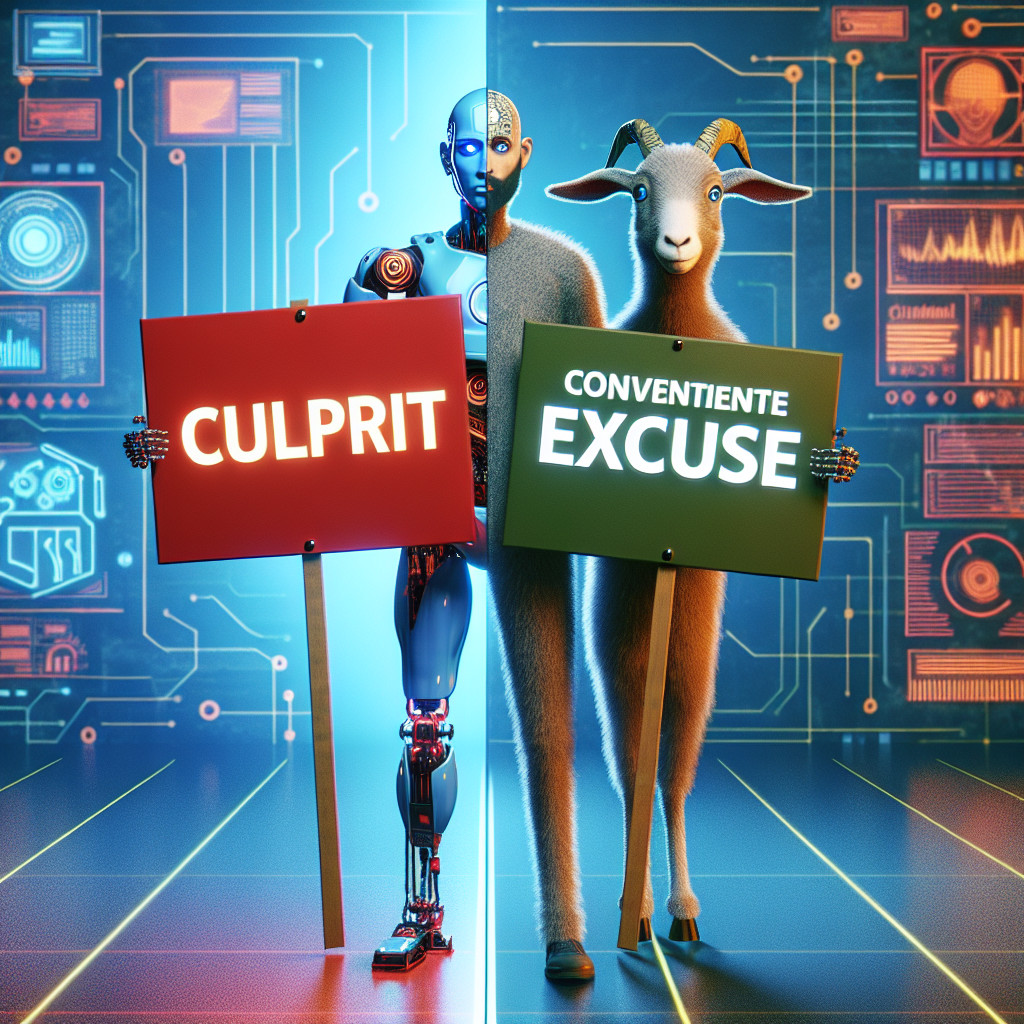In recent months, headlines have painted a stark picture. Major tech companies are announcing significant layoffs. A common narrative often emerges from these discussions. CEOs frequently point to artificial intelligence (AI) as a key factor. They suggest AI drives new efficiencies. This efficiency, they claim, reduces the need for human roles. However, is AI truly the primary cause of these job cuts? Or is it a convenient explanation amid broader economic shifts?
The debate surrounding AI’s role in the job market is not new. Yet, the current wave of layoffs intensifies this discussion. Many workers understandably feel anxious. They wonder about their future in an AI-driven world. Understanding the complexities behind these decisions is crucial. We must look beyond the surface-level explanations.
The CEO’s Perspective: A Leaner, Meaner Machine?
Leaders often frame AI as a transformative force. They highlight its potential to automate tasks. AI can streamline operations like never before. This perspective suggests that companies become more productive. They achieve more with fewer human resources. For example, AI can handle customer service inquiries. It can analyze vast datasets quickly. It can even generate code snippets. These capabilities undoubtedly enhance efficiency. From a business standpoint, this efficiency can lead to reduced operational costs. It might also improve profit margins. Thus, some argue, layoffs are a natural consequence. They represent a necessary adaptation. Companies are simply becoming more agile. They are preparing for a future defined by intelligent automation.
Beyond AI: Unpacking the Broader Economic Picture
While AI’s impact is undeniable, it is rarely the sole factor. Several other powerful forces are at play. The tech industry experienced unprecedented growth. This surge happened during the global pandemic. Companies hired aggressively. They aimed to meet soaring demand for digital services. As the world returned to normalcy, this demand began to stabilize. This shift often led to a market correction. Many companies found themselves overstaffed. They had expanded too rapidly. The current economic climate also plays a significant role. High inflation and rising interest rates create pressure. Businesses face higher costs of capital. Consumers have less disposable income. This leads to reduced spending. Consequently, companies must tighten their belts. Layoffs become a difficult but perceived necessary measure. They aim to safeguard financial health. Therefore, blaming AI entirely for causing layoffs might oversimplify a complex situation. It could distract from these other, equally important, factors.
AI’s Nuanced Role: Transformation, Not Just Replacement
It is important to consider how AI actually impacts work. AI excels at repetitive, rule-based tasks. It can perform these tasks with incredible speed. This automation does reduce the need for certain human roles. However, AI also creates new opportunities. New jobs emerge in AI development. Roles in prompt engineering are in demand. Ethical AI oversight is becoming critical. Data science and AI governance also offer new career paths. Therefore, AI often transforms roles. It augments human capabilities. It doesn’t always lead to direct job elimination. Instead, tasks within existing jobs evolve. Workers might need new skills. They might focus on more creative tasks. They might manage AI systems. This shift requires adaptability from the workforce. It demands new training programs from employers. The focus should be on reskilling. It should be on upskilling. This prepares employees for these evolving roles.
Furthermore, some argue that AI is more of an accelerant. It speeds up existing trends. It makes companies more efficient. It helps them react to market changes faster. If a company was already considering restructuring, AI could provide the justification. It offers a clear pathway to automation. This doesn’t mean AI is the root cause. It means it enables quicker decisions. It helps implement changes more rapidly.
Navigating the Future of Work
The ongoing discussion about AI and layoffs highlights a crucial challenge. Both workers and companies must adapt. For individuals, lifelong learning is no longer an option. It is a necessity. Acquiring AI-related skills offers a significant advantage. Understanding how AI functions is key. Learning to collaborate with AI tools is vital. For businesses, the approach must be strategic. They should consider the long-term implications. 단순히 reducing headcount based on AI capabilities might be shortsighted. Investing in employee training is crucial. Fostering an adaptable workforce is paramount. A balanced approach leverages AI’s power. It also values human talent and potential. The goal should be synergistic growth. It should not be a zero-sum game between humans and machines.
The narrative around AI causing widespread layoffs is compelling. However, it often masks a more intricate reality. Economic forces, pandemic-era over-hiring, and strategic restructuring are all significant drivers. AI certainly plays a role. It enables new efficiencies and transforms job functions. Yet, it is more accurate to view AI as one piece of a much larger puzzle. The future of work will require continuous learning. It will demand unprecedented adaptability. It will call for thoughtful integration of technology. By understanding these complexities, we can better navigate the evolving landscape. We can build a more resilient and innovative tech industry for tomorrow.



